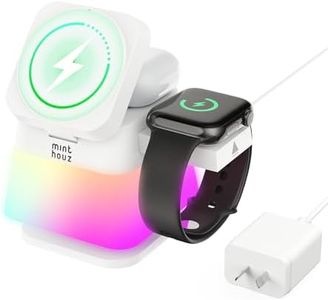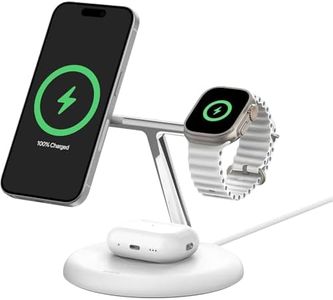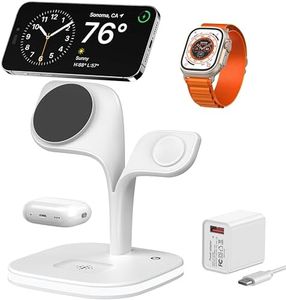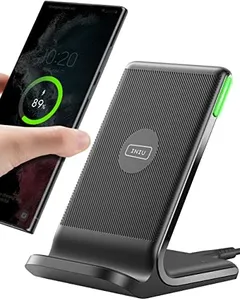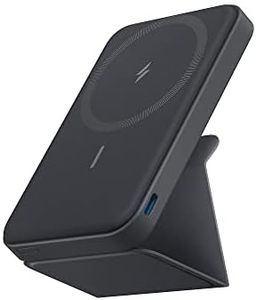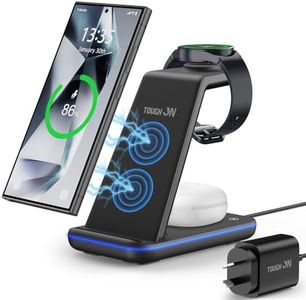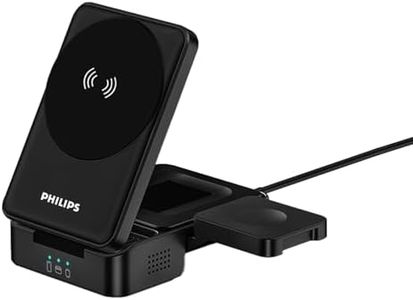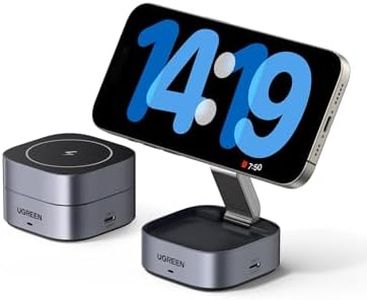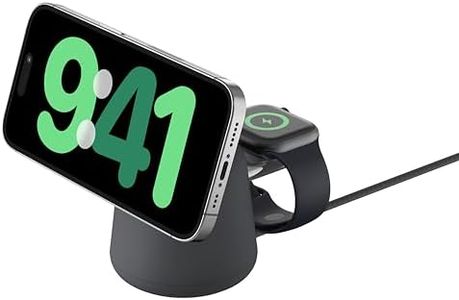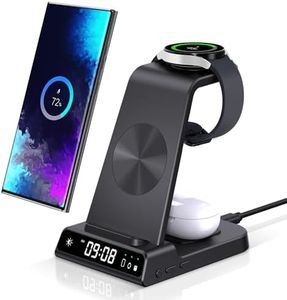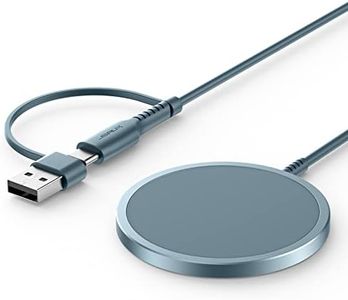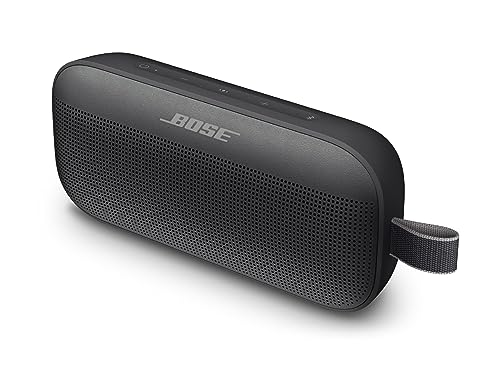We Use CookiesWe use cookies to enhance the security, performance,
functionality and for analytical and promotional activities. By continuing to browse this site you
are agreeing to our privacy policy
10 Best Wireless Chargers
From leading brands and best sellers available on the web.By clicking on a link to a third party's website, log data is shared with that third party.
Buying Guide for the Best Wireless Chargers
Choosing the right wireless charger can make charging your devices more convenient and clutter-free. To get the best fit, it's essential to understand a few key factors about wireless charging technology. Begin by thinking about how and where you plan to use the charger—on your desk, bedside table, or for travel. Knowing which devices you want to charge and how quickly you need them powered up will also guide your choice. Focusing on the most important features will help you find a reliable and safe charger that fits your daily needs.Charging Speed (Wattage)Charging speed, measured in watts (W), determines how quickly your device will charge. Higher wattage usually means faster charging but only if your device supports it. Chargers often range from 5W to 15W or higher. Entry-level options at 5W provide slow, basic charging suitable for overnight use. Mid-range options like 7.5W or 10W provide moderate speed and work well for most smartphones. Premium models offer 15W or above for the fastest wireless charging if your device can handle it. To choose correctly, check the maximum wireless charging rate your device supports and pick a charger that matches or slightly exceeds this value to get the best performance.
Device CompatibilityNot all wireless chargers work with every device. Most chargers use the Qi (pronounced 'chee') standard, which covers the vast majority of smartphones and headphones that support wireless charging. Some older or less common devices may use different technology or not support wireless charging at all. When choosing, confirm that your device supports Qi wireless charging and make sure the charger mentions compatibility with your device's brand or model to avoid any surprises.
Charger Type (Pad, Stand, Multi-Device)Wireless chargers come in several formats: flat pads, stands that prop up your phone, and multi-device stations for charging more than one device at once. Pads are discrete and good for simple, occasional use. Stands are handy if you want to see notifications or use your phone upright. Multi-device chargers are perfect for those who own multiple wireless charging devices, like a phone, wireless earbuds, and a smartwatch. Consider how you use your device most often and choose the charger type that matches your routine.
Build Quality and Safety FeaturesA well-built charger will last longer and ensure safe operation. Look for features like overcharge protection, temperature control, and foreign object detection to keep your devices safe during charging. Cheaper or poorly made models may overheat, charge inconsistently, or even damage your device. Prioritizing chargers from reputable brands with safety certifications is a smart move if you want peace of mind and reliability.
Portability and DesignDepending on where you plan to use the charger, its size, weight, and style might matter to you. Slim, lightweight chargers are great if you travel or need something for your workspace. Some chargers have non-slip surfaces or aesthetic designs that blend with your decor. Think about whether you’ll be leaving the charger in one spot or taking it with you, and choose a design that fits your preferences and environment.
Power Source and CableWireless chargers need to connect to a power source. Some include an adapter and cable, while others may only have a cable or no cable at all. The type of cable (USB-A, USB-C, etc.) and power adapter can impact charging speed. Using a charger with the recommended or higher-rated adapter will help you get the best performance. If you already have adapters at home, check if they match what your new wireless charger needs, or plan to purchase a suitable one.
